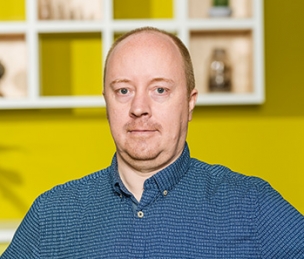Displaying 1 - 6 of 6
-
Van den Heuvel, H., Oostdijk, N., Rowland, C. F., & Trilsbeek, P. (2020). The CLARIN Knowledge Centre for Atypical Communication Expertise. In N. Calzolari, F. Béchet, P. Blache, K. Choukri, C. Cieri, T. Declerck, S. Goggi, H. Isahara, B. Maegaard, J. Mariani, H. Mazo, A. Moreno, J. Odijk, & S. Piperidis (
Eds. ), Proceedings of the 12th Language Resources and Evaluation Conference (LREC 2020) (pp. 3312-3316). Marseille, France: European Language Resources Association.Abstract
This paper introduces a new CLARIN Knowledge Center which is the K-Centre for Atypical Communication Expertise (ACE for short) which has been established at the Centre for Language and Speech Technology (CLST) at Radboud University. Atypical communication is an umbrella term used here to denote language use by second language learners, people with language disorders or those suffering from language disabilities, but also more broadly by bilinguals and users of sign languages. It involves multiple modalities (text, speech, sign, gesture) and encompasses different developmental stages. ACE closely collaborates with The Language Archive (TLA) at the Max Planck Institute for Psycholinguistics in order to safeguard GDPR-compliant data storage and access. We explain the mission of ACE and show its potential on a number of showcases and a use case. -
Wittenburg, P., Lautenschlager, M., Thiemann, H., Baldauf, C., & Trilsbeek, P. (2020). FAIR Practices in Europe. Data Intelligence, 2(1-2), 257-263. doi:10.1162/dint_a_00048.
Abstract
Institutions driving fundamental research at the cutting edge such as for example from the Max Planck Society (MPS) took steps to optimize data management and stewardship to be able to address new scientific questions. In this paper we selected three institutes from the MPS from the areas of humanities, environmental sciences and natural sciences as examples to indicate the efforts to integrate large amounts of data from collaborators worldwide to create a data space that is ready to be exploited to get new insights based on data intensive science methods. For this integration the typical challenges of fragmentation, bad quality and also social differences had to be overcome. In all three cases, well-managed repositories that are driven by the scientific needs and harmonization principles that have been agreed upon in the community were the core pillars. It is not surprising that these principles are very much aligned with what have now become the FAIR principles. The FAIR principles confirm the correctness of earlier decisions and their clear formulation identified the gaps which the projects need to address. -
Wittenburg, P., & Trilsbeek, P. (2010). Digital archiving - a necessity in documentary linguistics. In G. Senft (
Ed. ), Endangered Austronesian and Australian Aboriginal languages: Essays on language documentation, archiving and revitalization (pp. 111-136). Canberra: Pacific Linguistics. -
Wittenburg, P., Trilsbeek, P., & Lenkiewicz, P. (2010). Large multimedia archive for world languages. In SSCS'10 - Proceedings of the 2010 ACM Workshop on Searching Spontaneous Conversational Speech, Co-located with ACM Multimedia 2010 (pp. 53-56). New York: Association for Computing Machinery, Inc. (ACM). doi:10.1145/1878101.1878113.
Abstract
In this paper, we describe the core pillars of a large archive oflanguage material recorded worldwide partly about languages that are highly endangered. The bases for the documentation of these languages are audio/video recordings which are then annotated at several linguistic layers. The digital age completely changed the requirements of long-term preservation and it is discussed how the archive met these new challenges. An extensive solution for data replication has been worked out to guarantee bit-stream preservation. Due to an immediate conversion of the incoming data to standards -based formats and checks at upload time lifecycle management of all 50 Terabyte of data is widely simplified. A suitable metadata framework not only allowing users to describe and discover resources, but also allowing them to organize their resources is enabling the management of this amount of resources very efficiently. Finally, it is the Language Archiving Technology software suite which allows users to create, manipulate, access and enrich all archived resources given that they have access permissions. -
Trilsbeek, P., & Wittenburg, P. (2005). Archiving challenges. In J. Gippert, N. Himmelmann, & U. Mosel (
Eds. ), Essentials of language documentation (pp. 311-335). Berlin: Mouton de Gruyter. -
Wittenburg, P., Skiba, R., & Trilsbeek, P. (2005). The language archive at the MPI: Contents, tools, and technologies. Language Archives Newsletter, 5, 7-9.

Share this page